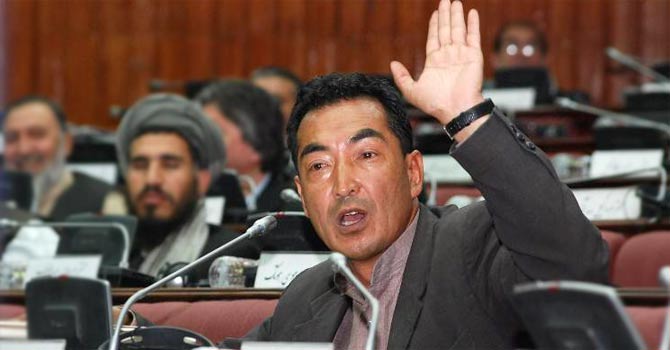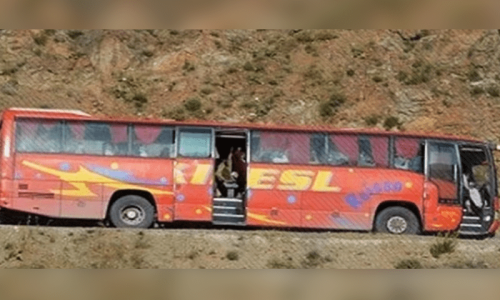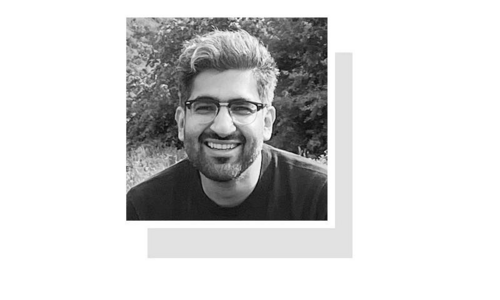
The outspoken, charismatic and idealist Dr Ramazan Bashardost – friend of humans, as his last name translates – is a member of the Afghan Parliament, a former planning minister and an independent candidate for the upcoming presidential elections.
Dr Bashardost stood third in 2009 presidential elections. As Hamid Karzai failed to get 50 per cent plus one vote, he had to compete in a runoff with the second-placed candidate Abdullah Abdullah, who refused the runoff.
“According to the Afghan constitution, it was my right to be in that runoff but (Hillary) Clinton declared Hamid Karzai the winner from Washington DC. I was a clear winner had the elections not been rigged,” he claimed.
Born in Qarabagh district of the Ghazni province in central Afghanistan, Bashardost received primary and intermediate education in Qarabagh and later in Maimana, capital of Faryab province in northern Afghanistan. Soon after the 1978 coup d’etat, Bashardost left Afghanistan for Iran. He finished high school in Iran and then immigrated to Pakistan.
In 1983, he left Pakistan for France where he spent over 20 years, earning degrees in law and political science. In 1989 he enrolled at Garonable University where he earned a masters degree in law. In 1990, he did his Masters in Diplomacy from Paris University. In 1992, he did his Masters in Political Science. He earned three master’s degrees and a doctorate in political science at the University of Toulouse, France.
During the 2009 elections, Bashardost claims to have travelled to 24 of Afghanistan’s 34 provinces on public transport to preach his message of peace, social justice and non-violence. In a unique and unprecedented move he used to sell his posters and promotional DVDs to his fans as a source of income for the election campaign.
Nicknamed the “Gandhi of Afghanistan”, Bashardost was recently invited to deliver a lecture on the Afghanistan crisis at Gothenburg University in Sweden, where he spoke about president Hamid Karzai’s incompetence and the US-lead Nato forces’ failure in establishing peace and countering drug trafficking as well as terrorism.
For this interview, held after his speech at Gothenburg University, the presidential hopeful was dressed in traditional Afghan dress with its collar lined with the colours of the Afghan flag. Bashardost was, as usual, carrying piles of folders and files that he said were the ‘documents of corruption’ he would present to the European people, “whose taxes were being paid to protect the warlords, criminals and terrorists in Afghanistan.”
While vociferously criticising Nato, Hamid Karzai and the warlords for their failure to bring peace in the country, he backed his arguments with evidences he claimed to have received from some “honest Afghan officials.”
“The Taliban would have totally vanished if the coalition forces and Karzai regime were sincere in their efforts to bring about peace in Afghanistan,” he claimed.
“Billions of dollars were poured into Afghanistan but all were wasted by the corrupt government and NGOs. To me they are No-Good-Guys,” he added.
He resigned as planning minister in 2005, when the government refused to take actions against some 2,000 NGOs, which were allegedly declared ‘corrupt’ by his ministry.
“Nobody is with the Afghan people. The foreigners have their own agenda in their so-called war on terror/war against Taliban and, you know, Hamid Karzai calls Mullah Omar a ‘brother’.”
“Yes, they are all brothers—in drug trafficking ....in committing crimes against humanity. It’s not only me saying this. Ask Ali Ahmed Jalali (former interior minister) for all the details. Read the newspapers about the involvement of Hamid Karzai’s brother in drug trade.”
As he continued naming some sources he also referred to United Nations Office on Drugs and Crime (UNODC’s) report stating that drug trade generated 60 billion dollars in revenue for drug traffickers under the very nose of US-led Nato forces. “Corruption and drug trade are practically legal in today’s Afghanistan,” he summed it up, a bit furiously.
After wining a parliamentary seat with second highest number of votes from Kabul city, Dr Bashardost built “Tent of the Nation” outside Afghan parliament to be easily accessible to the ordinary people and distributed his salary among the needy.
“The orphans of Bush and Taliban with necktie (referring to Jihad leaders, Hamid Karzai and affiliates) are not accessible to the common people. ‘Due to security reasons’, they would excuse. But the fact is that they do not trust the people of Afghanistan.”
In a country torn apart by successive wars and ethnic divisions, Bashardost said he will continue with his efforts to unite the people: “I am the only politician who can travel across Afghanistan without any bodyguard. I set an example that you can win an election and create a national unity without a penny, without any foreign support and without a gun.
I have shown a road less travelled by. Gandhi succeeded in the same way,” he said, recounting his achievements.
When asked who he would prefer from amongst the US-led Nato forces, Hamid Karzai, Taliban and Jihad leaders, Bashardost was quick to respond: “Faces of the same coin. Apparently they fight against each other but they share the benefit – the benefit of war. One thing must be clear: We can not build a new system with old people. We can not build democracy in Afghanistan with the enemy of Afghanistan”
With the increasing anxiety among the majority of Afghans about the withdrawal of coalition forces in 2014, fear of Taliban’s return and yet another civil war, Bashardost predicts no big a change in the near future.
“If the international community and Obama administration decide to stop the war, it will end within a week. The US is trying to remain in Afghanistan as long as possible,” he explained.
There are rumours of disintegration of Afghanistan, demands for establishment of a federal system based on ethnic lines and decentralisation of current political system as a solution for the crisis. The country’s powerful opposition alliance, The National Front of Afghanistan, lead by Ahmed Zia Masoud, Mohammad Mohaqeq and Rasheed Dostum are already out for a change in constitution for a more decentralised model of the government.
However, Bashardost is of the view that “all such promises are made by the US and other Western politicians to appease the opposition on one hand and to pressurise the Karzai regime on the other hand for their own benefits. If not, a disintegrated or even a decentralised Afghanistan is not in their interest.”
Contrary to what most of the Af-Pak analysts consider the Durand Line issue as a main source of tensions between the two neighbouring countries of Afghanistan and Pakistan, Bashardost thinks “it is a fake issue created by the ruling elite to divert public attention from the core issue i.e. is the corrupt leadership in both countries. If Pakistan is worried about the issue, it should naturally support the non-Pashtuns who are not interested in the Durand Line. But Pakistan has supported Taliban who will never recognise the Durand Line as a border between the two countries.”
Pakistan has always expressed concerns over India’s huge presence in Afghanistan and therefore justifies it’s interference. According to Bashardost, “the people of these countries have no issues with each other at all. It’s the minority ruling elite who terrifies their people in the name of national security. Billions of dollars are spent in buying weapons while millions of people are deprived of basic necessities of life”
If elected as president of Afghanistan, Bashardost said that he would set Kabul as his political Kaaba, not Washington, Islamabad, Dehli, Tehran or Moscow. And suggested that end of foreign interference and free-and-fair elections are the only solution to Afghanistan crisis.
“I’ll spend the tax payer’s money for my country’s welfare i.e. education, health, infrastructure etc, not against the neighbouring countries. In turn, I would ask them to do the same. It is on my agenda to create friendly relations with all the neighbouring countries based on mutual respect and equality so that one day we will come forward to agree upon an EU style union in South and Central Asia.” He added.
Bashardost in a special message to the people of Pakistan said that “all ordinary people in Afghanistan and Pakistan share the same destiny. There is no enmity between the common people. It’s therefore our mutual responsibility to force our leaders to concentrate on the welfare of the people rather than meddling in each other’s affairs.”
Despite his claims and promises of a better future for Afghanistan, it remains to be seen if Dr Bashardost is a dreamer or simply cashing in on the widely reported corruption and inefficiency of the Karzai government.
Dr Saleem Javed is a freelance journalist and human rights activist from Quetta. He tweets at @mSaleemJaved and can be reached at dr.saleemjavid@gmail.com











































